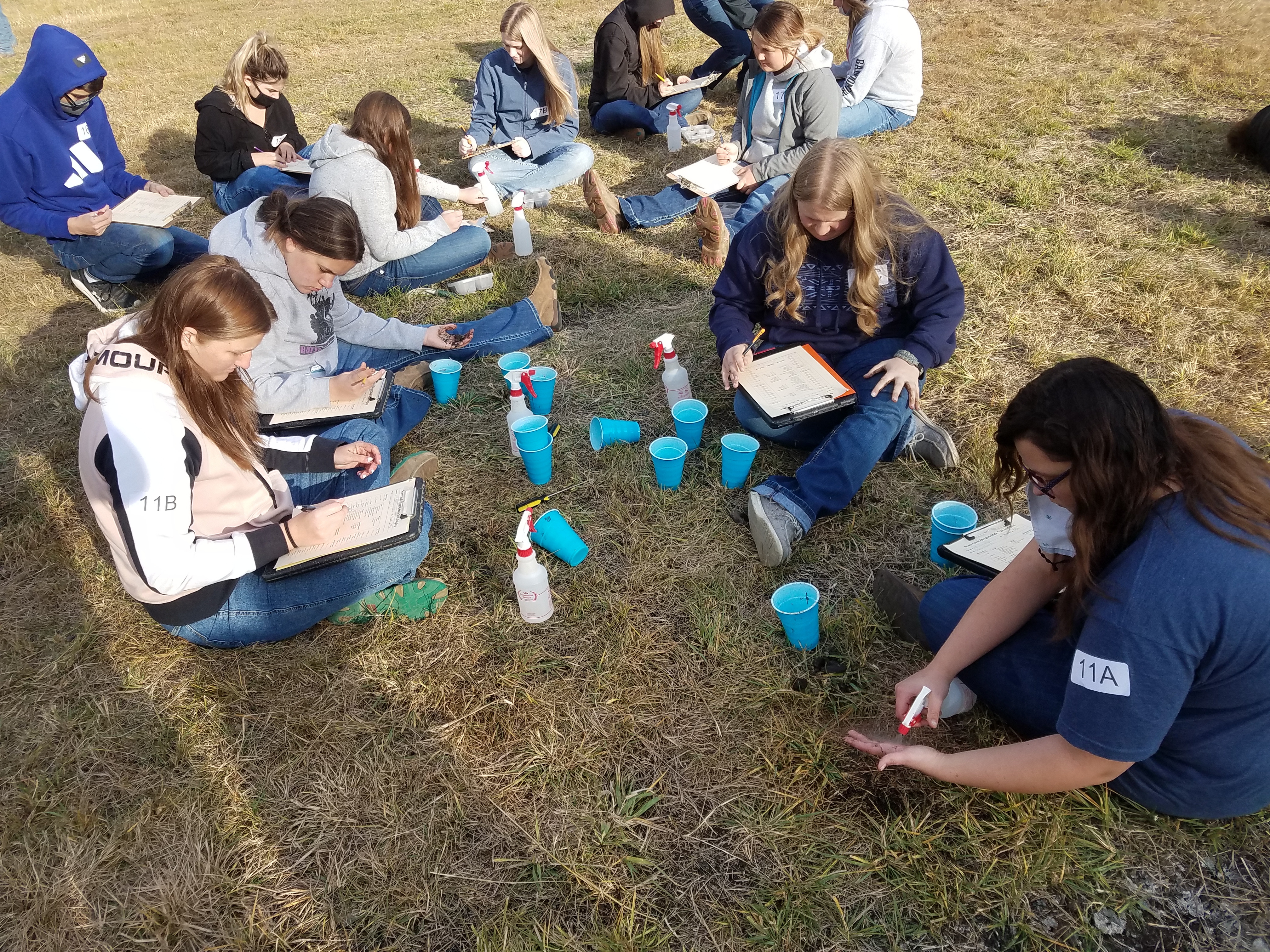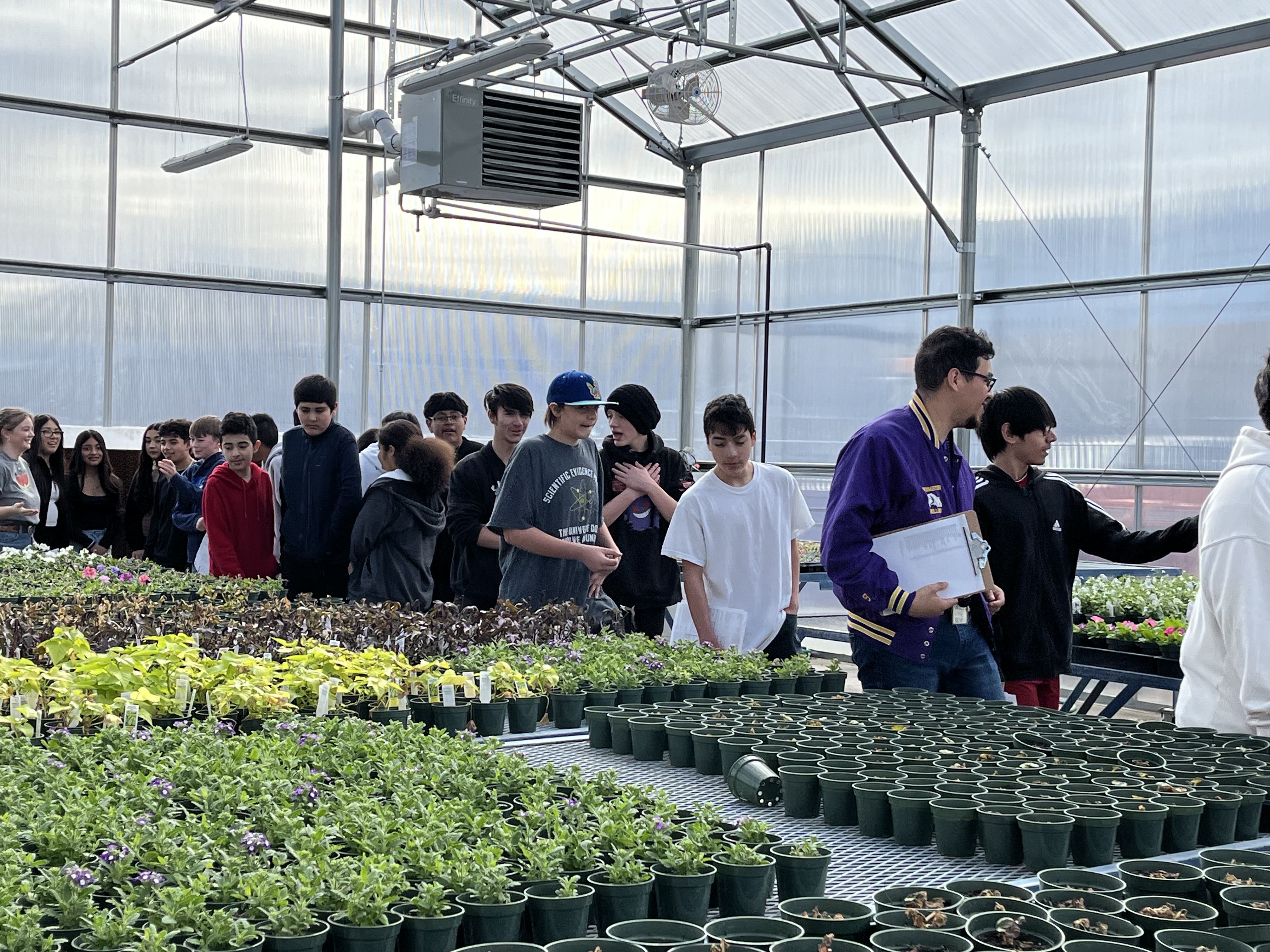Seeds of Success
Hermiston School District’s Agricultural Science Program Grows Future Leaders
Editor’s note: This is the second in a series of stories highlighting Hermiston School District’s career and technical education (CTE) programs. Up next: Arts, Information, and Communications.
All students enrolled in Intro to Food, Agriculture, and Natural Resource Systems learn to drive a tractor.
Before she was a teacher at Hermiston High School, Ellery Jones was a student at HHS who found her passion working in agriculture.
Jones took classes in agricultural biology, horticulture, and physical science, among others. She was an active member of the local Hermiston FFA Chapter, eventually earning her State Degree, the highest honor bestowed by Oregon FFA.
After graduating in 2017, Jones said the skills she gained through Hermiston’s Agricultural Science program helped her to land a job at a local food processing plant. She later earned her bachelor’s degree in plant science from the University of Idaho and has since returned to HHS where she teaches plant science — paving the same path she once followed for a future generation of agriculture professionals.
“It was just amazing to see how the skills I learned through the program were capable of being transferred into the workforce, and how much further ahead I was. It’s the reason that I had an amazing internship through college debt-free, and it’s the reason I’m back in the classroom today sharing what I love.”
— Ellery Jones, Plant Science Teacher
Agricultural Community
Hermiston and Umatilla County is a diverse agricultural area. Top crops are wheat, hay, irrigated vegetables and potatoes, according to the 2022 USDA Census of Agriculture. The total market value of agricultural products sold that year was more than $525 million.
Agriculture, Food, and Natural Resource Systems is one of six career areas offered by Hermiston School District in career and technical education (CTE). Agricultural Science is the lone program of study, which is further divided into three separate pathways:
- Animal science.
- Plant science.
- Welding.
Sandy McKay, who teaches animal science at HHS, said about 25 students each year receive recognition in one of the three pathways. That means they complete at least three year-long classes, earning at least a B in each class, while also participating in FFA.
The Hermiston FFA Chapter has more than 500 members dedicated to advocating for agriculture.
The program is guided by a five-member advisory council representing Umatilla County’s diverse agriculture industries. McKay said it can be difficult at times keeping up with the rapid changes in agriculture, including new technology and best management practices.
“We talk about self-driving cars. Well, we had self-driving tractors first. We talk about drones. Well, we had drones working in agriculture first,” McKay said. “Agriculture is just constantly evolving, and we have to constantly be trying to stay up with it by adapting our curriculum.”
Hands-On Experience
Both Jones and McKay emphasized the importance of hands-on learning in their classes, combined with traditional studies, to prepare students for the workforce.
In plant science, Jones said HHS has two, 30-foot-by-50-foot greenhouses where students grow thousands of vegetable seedlings. Students start by the learning the basics of soil and plant nutrition, then build their own homemade hydroponic system to grow their seedlings.
Jones also teaches the anatomy and physiology of plants; runs a floriculture unit, where students grow and sell their own floral arrangements through a monthly subscription; and provides training for students to receive their Pesticide Applicators License, if they choose.
Hands-on learning is a fundamental element of Hermiston School District’s Agricultural Science program.
In animal science, McKay said they use several hands-on models (including one named “Breeding Betsy”) for teaching students proper livestock care and veterinary skills.
All students go through Intro to Food, Agriculture, and Natural Resources, where they learn how to drive a tractor.
“We don’t just say, ‘This is the best way to grow a plant.’ We let them grow over 5,000 plants. We don’t just say, ‘When you have a pregnant animal, you’ll be able to feel this.’ Our animal science teachers give them the opportunity to practice that application, and gain that skill,” McKay said. “I think that’s really what sets us apart, is that kids are able to get that hands-on experience.”
One new addition coming in the spring is a class teaching the basics of running an agricultural business including proper budgeting, how to apply for loans, and tracking income and expenses. McKay said a local commodities trader will also donate bushels of corn for the class to learn how to trade on the commodities market.
Once a year, McKay said they host a day bringing in eighth-graders from both Hermiston middle schools to show them everything their program has to offer. Hopefully, McKay said something catches their interest and plants a seed that can turn into a future career.
“We get kids who we put on a tractor for the first time, and they’re scared to death at first but then they love it,” he said. “Who knows what that’s going to end up for them in their career field? Maybe it’s something that opens up a world they didn’t know was there.”
Local eighth-graders tour the greenhouses at Hermiston High School, looking over vegetable seedlings.






